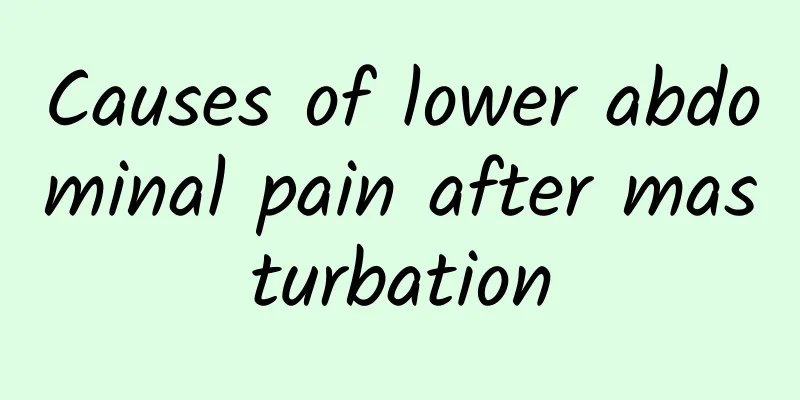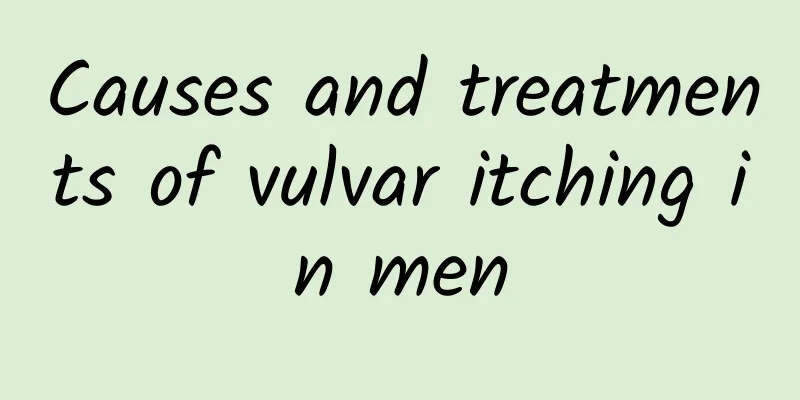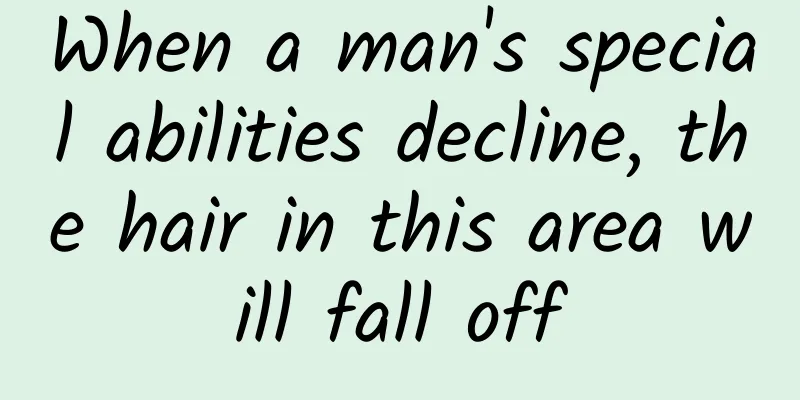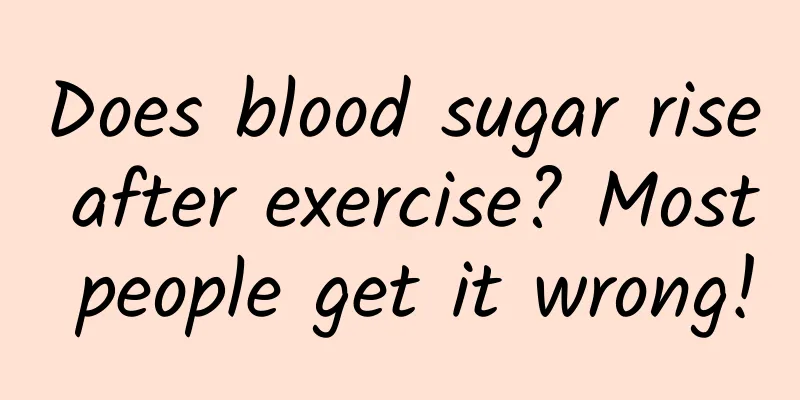Discomfort when squatting to urinate after castration

|
"Chemical castration" belongs to endocrine therapy, also known as drug castration. Drug castration is also a standard endocrine treatment method for prostate cancer at this stage. The so-called drug castration treatment method is actually to introduce anti-androgens (male testicular decondensation agents) or sex hormone stimulating growth hormone decondensation agents into the body, causing him to lose sexual excitement and no longer get hard, so that the unique physical reactions of men disappear. So what is the reason for the discomfort of squatting to urinate after castration? Let's take a look at the detailed introduction. Why is it uncomfortable to squat and urinate after castration? This kind of pain is a normal condition after castration surgery. It can be treated with local heat, massage, infrared acupuncture and other physical therapies. The pain usually lasts for about 10-15 days. Pay attention to rest, drink plenty of water, eat light food, and avoid spicy and irritating foods. Endocrine therapy for prostate cancer is also known as androgen deprivation therapy. It is based on two methods. One is castration therapy, which is to inhibit the metabolism of androgen in male testicles. The other is anti-androgen therapy, which is to block the fusion of androgen and protein kinase. There are many actual methods, such as simple castration therapy, i.e. surgical treatment or drug castration, single anti-androgen therapy, maximum androgen deprivation therapy, early or delayed endocrine therapy, intermittent endocrine therapy, etc. Castration treatment details Surgical castration treatment Surgical castration includes bilateral orchiectomy and bilateral male testicular excision. Since male hormones play a dominant role in the development of prostate cancer, bilateral orchiectomy can reduce testosterone and slow down the development of prostate cancer. Although this type of treatment only blocks testosterone from male testicles, it is reported that 60% to 70% of patients can be reasonably controlled. This is because the male hormones produced by male testicles will be significantly reduced after surgical castration. For a long time, orchiectomy and taking large amounts of estrogen have been the gold standard for endocrine treatment of advanced prostate cancer. However, this surgical castration treatment has a double blow to the patient's psychological and physiological state. However, this treatment method is cheap and simple, and some advanced prostate cancer patients still choose this treatment plan. The effects of medical castration are reversible. Compared with surgical castration, castration has less psychological and physiological effects on patients, and patients are more likely to accept it, so it has become the standard endocrine treatment plan at this stage. Common drugs include luteinizing hormone-releasing growth hormone (LHRH) inhibitors and gonadotropin-releasing growth hormone (GnRH) antagonists. Goserelin, leuprorelin and triptorelin, which are commonly used in clinical medicine at this stage, have similar effects and can reduce testosterone to castration levels within 3 weeks. However, after the first injection of drugs such as LHRH and GHRH-α, the patient will experience flare symptoms, mainly manifested by low libido, sweating, bone pain, cognitive dysfunction, fatigue and other symptoms. This condition may last for about 20 days. Therefore, it is best to add anti-androgen drugs such as bicalulamide and flutamide 2 weeks before injection or on the day of injection until 2 weeks after injection to prevent rebound of biochemical indicators and clinical manifestations. In recent years, the gonadotropin-releasing growth hormone antagonists developed by products, such as degarelix, have a certain therapeutic effect on these prostate cancer patients who are intolerant to flare. According to the results of relevant clinical studies, the efficacy of degarelix is similar to that of gonadotropin-releasing growth hormone antagonists. Its advantages are that while avoiding the side effects caused by transient increase in testosterone, it can also reduce blood cell testosterone to castration levels within 3 days, and the progression-free survival period is better than that of gonadotropin-releasing growth hormone antagonists. Anti-androgen therapy With the successful development of steroidal and non-steroidal anti-androgenic drugs, the first generation of anti-androgenic drugs has gradually begun to be used in the treatment of advanced prostate cancer. Common first-generation anti-androgenic drugs are mainly divided into two categories: one is steroid hormone drugs, common drugs are megestrol acetate and progesterone acetate, this type of drug has great side effects and is rarely used independently in clinical medicine. The other is non-steroidal drugs, such as bicalutamide, flutamide and nilutamide, etc. This type of drug can be used independently or in conjunction with castration therapy. A large-scale clinical study showed that the efficacy of bicalutamide alone for patients with M1 stage prostate cancer was lower than that of castration therapy, but for patients with partially advanced prostate cancer that had not metastasized, there was not much difference in overall survival between the independent use of bicalutamide and combined castration therapy. New endocrine therapy for prostate cancer Endocrine therapy for prostate cancer patients has a good response, but many patients will still experience a flare-up after one or two years of treatment. At this time, the disease enters the castration-resistant stage and becomes castration-resistant prostate cancer (CRPC). Basic endocrine therapy cannot suppress the development trend of prostate cancer, and even radiotherapy such as docetaxel growth hormone has little effect on the development trend of these patients' symptoms. In recent years, the significant results of various large-scale clinical studies have also applied new endocrine therapy drugs abiraterone and enzaluamide to the treatment of advanced prostate cancer. Data show that abiraterone and enzaluamide can effectively increase the survival time of patients. |
<<: What are the benefits of squatting for men?
>>: The nemesis of chronic prostatitis
Recommend
Acupoint massage for male enhancement
Speaking of male enhancement, men should be excit...
There is always something muddy on the glans
Many men find that they can often rub off some mu...
Pain at the base of pubic hair
The symptoms of pain at the root of pubic hair mo...
What should I do if I laugh so hard that my stomach cramps?
When people are chatting and gossiping together, ...
The man's genitals are rotten
In our lives, many male genitals will have some d...
What are the benefits of soaking dates in water for men?
Jujube is a common fruit in our life. It can be s...
How much does it cost to treat premature ejaculation?
The cost of acupuncture therapy is determined by ...
How to treat prostate disease most effectively
Treating prostate disease is a difficult problem ...
Men are most useless at 8pm
Men’s bodies are most sensitive between 6 and 7 i...
Can prostatitis cause nephritis?
Prostatitis is a very common male genital disease...
Bleeding after shaving
Bleeding when shaving is because the skin is rela...
Sentimental man
Nowadays, men are under great pressure in life an...
How to control normal blood pressure in men
There are certain differences between boys and gi...
How to make hard hair softer for men
I believe everyone knows the importance of hair t...
High temperature is a hidden killer of sperm production
Andrology experts remind: the temperature of the ...









